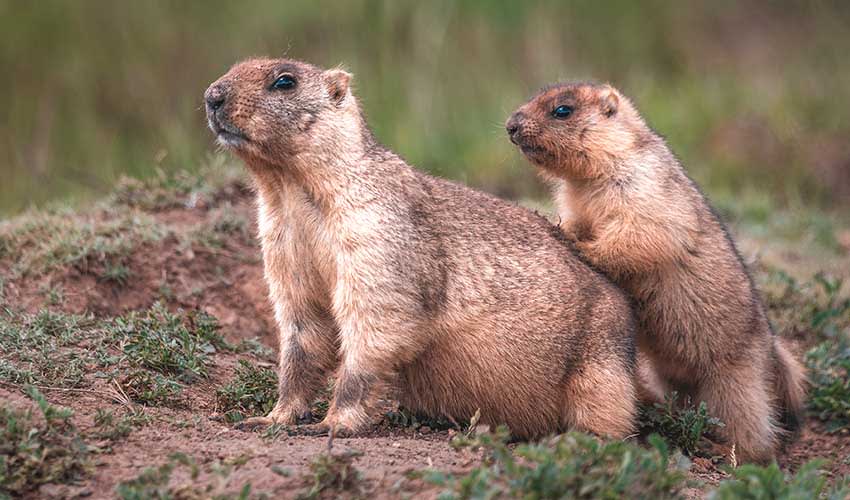A big, friendly-looking ground animal that lives on the vast, grassy plains of Eastern Europe and Central Asia. Think of fields that seem to go on forever in Ukraine, Russia, and Kazakhstan. Bobaks are chunky, with golden-brown fur, short ears, and a sturdy body made for digging. They spend most of their lives close to their homes, which are long tunnel systems with several doors. These underground homes keep them safe from bad weather and hungry predators. If you see one sitting up like a tiny guard, that’s a lookout marmot checking the area. It will whistle loudly if danger appears, and the whole group will dash back into their tunnels.
Bobaks are daytime animals. They wake with the sun, eat, play, groom each other, and take naps. Their favorite food is simple: fresh grass, leaves, and flowers. In late summer, they eat a lot to build up fat because they sleep through the cold months during a long winter break. This deep sleep can last many weeks, and they share warm underground rooms with family members. When spring returns and the ground thaws, they return to enjoy the new plants. Their strong claws and teeth are perfect tools for digging and for clipping tough stems, but they don’t hunt other animals—plants are plenty for them.
Family life is a big part of being a Bobak. They live in colonies, which you can imagine as a small town of burrows spread across a gentle hill. Inside each “home,” usually a pair of parents and their young. Bobaks also talk a lot using sounds and body language. The most famous sound is their sharp whistle, which can carry across the grass like a tiny alarm siren. They also chirp softly when greeting each other and flatten their bodies when they want to be left alone.
Distribution
 Kazakhstan
Kazakhstan Russia
Russia Ukraine
UkraineAnything we've missed?
Help us improve this page by suggesting edits. Glory never dies!
Suggest an editGet to know me
Terrestrial / Aquatic
Altricial / Precocial
Polygamous / Monogamous
Dimorphic (size) / Monomorphic
Active: Diurnal / Nocturnal
Social behavior: Solitary / Pack / Colony
Diet: Carnivore / Herbivore / Omnivore / Piscivorous / Insectivore
Migratory: Yes / No
Domesticated: Yes / No
Dangerous: Yes / No




